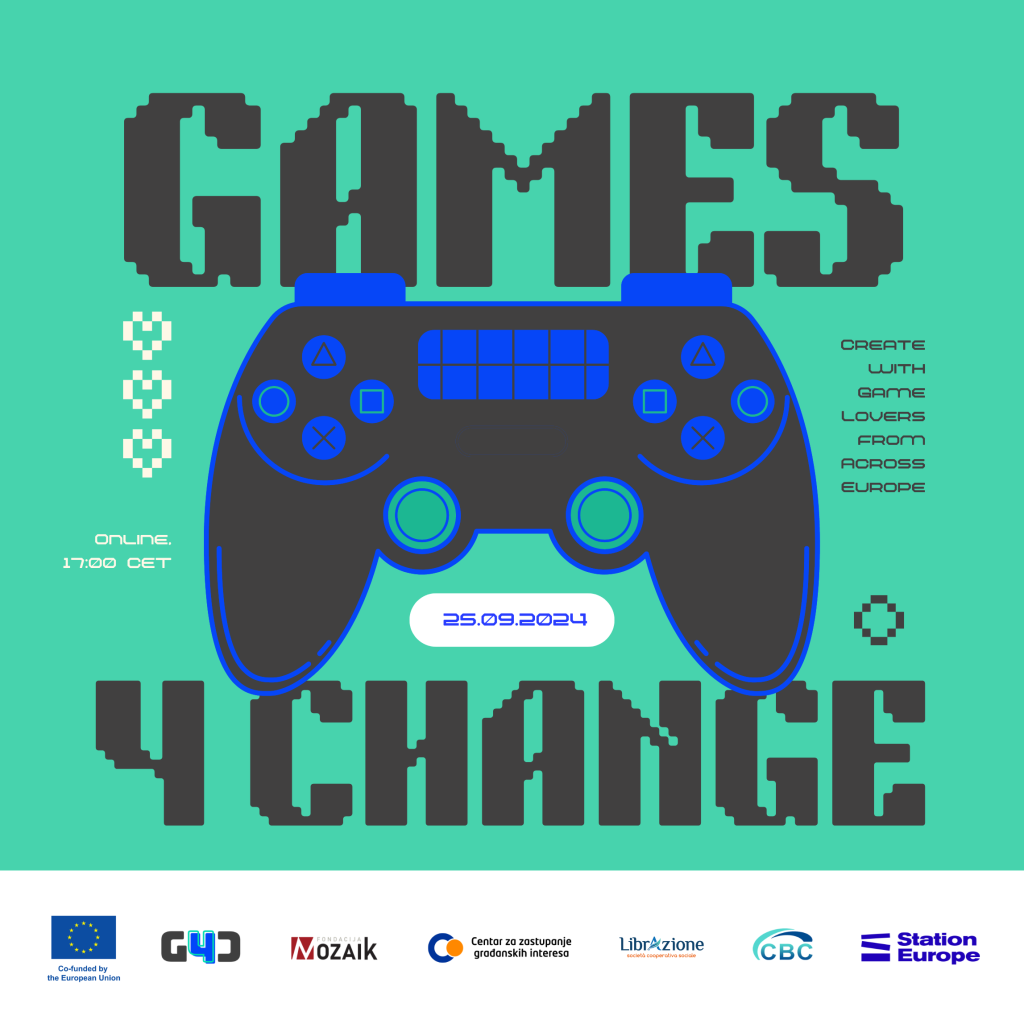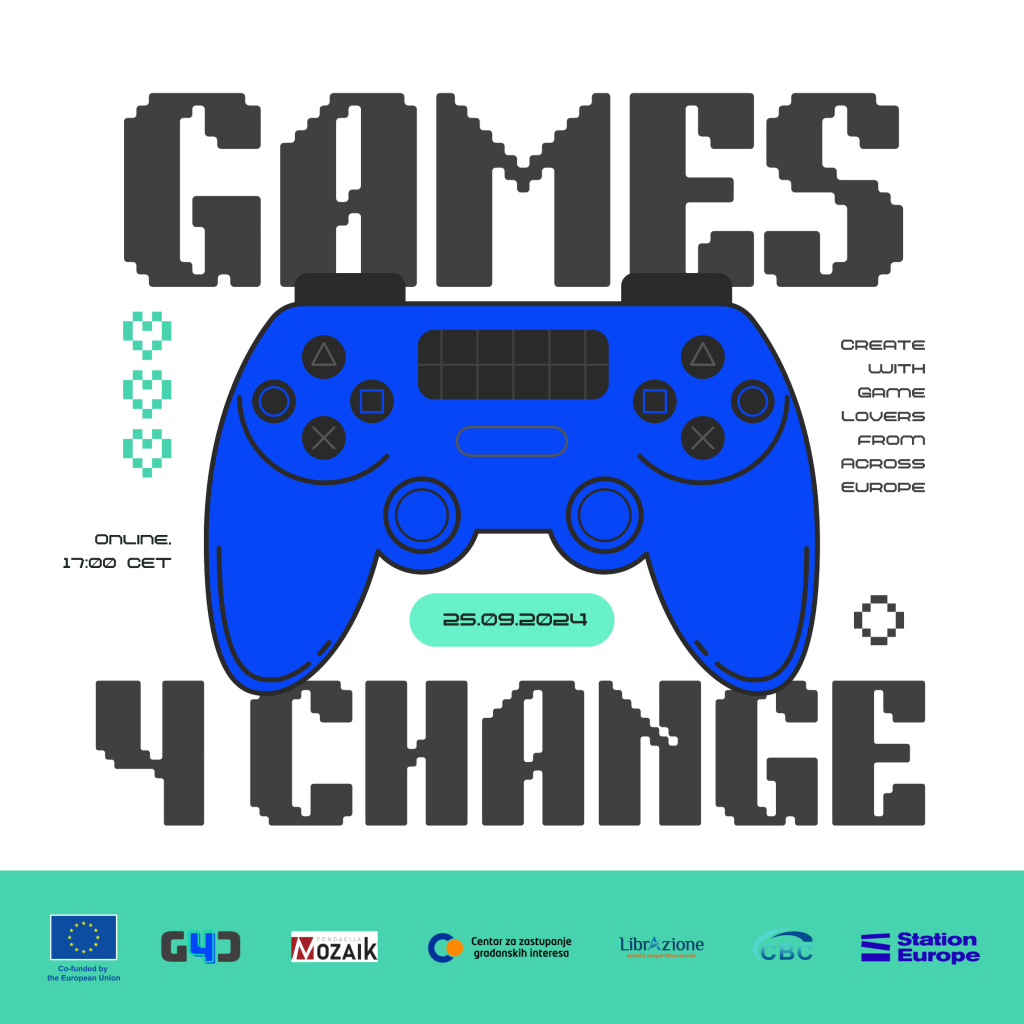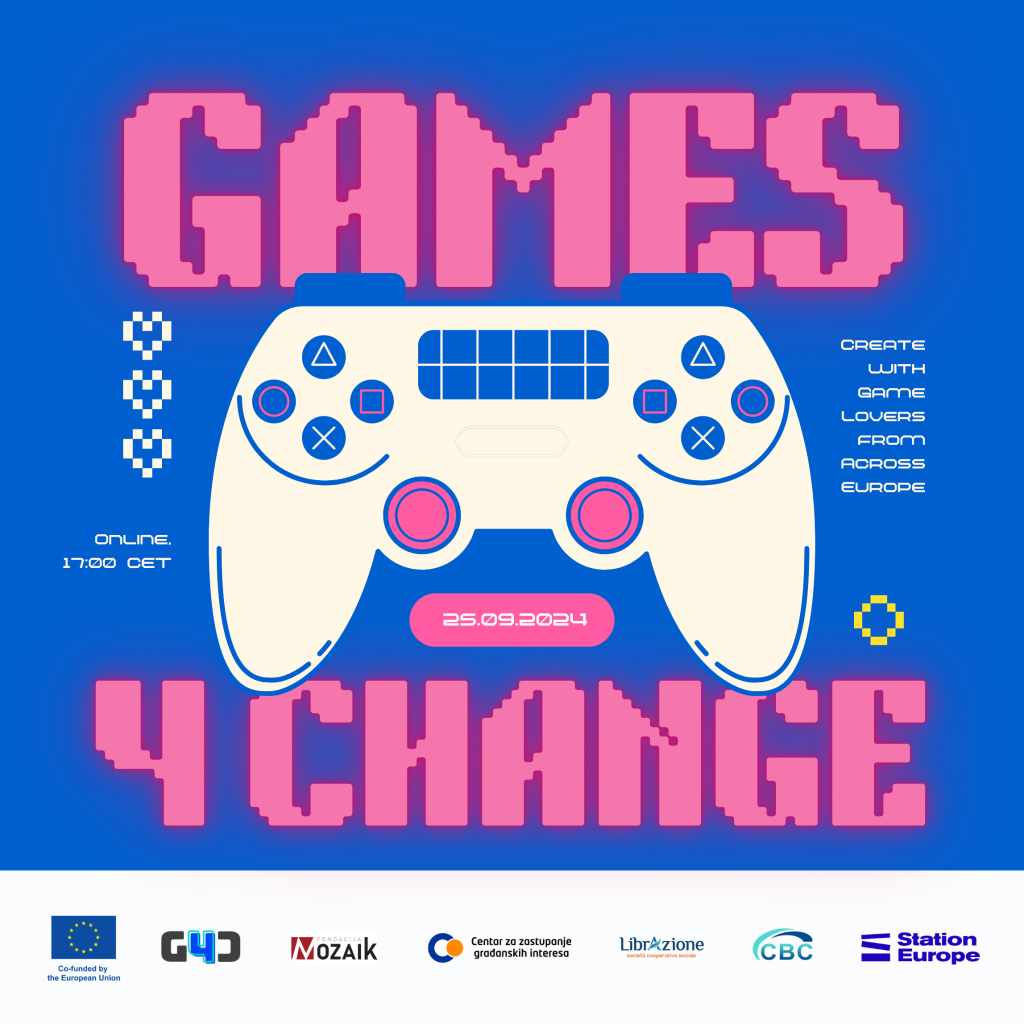Games for Change
The Games for Change (G4C) project aims to enhance the engagement of youth from the EU and Western Balkans by connecting them through virtual exchanges focused on socially relevant challenges and issues. By applying gamification methodology and social role-playing, the youth involved in this international cooperation will enhance their social and emotional skills as well as their knowledge about contemporary dilemmas, fostering their participation in building a peaceful, tolerant and non-discriminative Europe.
We will employ virtual learning, digital tools and innovative non-formal learning methodologies to encourage youth to accept cultural differences when engaging them in cross-regional dialogue. We will include youth with fewer opportunities and address digital divide. Through an innovative game-based learning approach, the project empowers youth to explore topics such as polarisation, countering disinformation, anti-discrimination, democratic values, and climate education. The project also strengthens formal and non-formal educators by equipping them with sustainable tools to implement game-based methodologies in youth work.
Our objectives and associated work packages will focus on:
Involving young people from the EU and Western Balkan countries in virtual discussions focused on identifying specific pressing social issues that matter to them within national and cross-regional contexts. We will develop games that are aligned to the most current needs of young people and are relevant to the local context in project countries.
Strengthening intercultural dialogue between young people from EU and Western Balkans countries and encourage their mutual participation around identified pressing social issues with the help of Social Role-Playing Games. We will foster youth engagement, through involving them in online games to gain knowledge and skills around topics such as P/CVE, polarization, disinformation, anti-discrimination, democratic values, and climate education.
Equipping CSOs and educators (both formal and non-formal) with gamification tools to use in future youth work and to prepare grounds for sustainability of transnational virtual exchanges. We will build their capacity to use innovative learning methodologies and enhance their ability to deliver and implement games and youth projects in the various countries.






We designed and tested four complete social role-playing game scenarios, two newly created and two redesigned from previous iterations. These were based on a rigorous needs assessment involving 264 young people, 49 formal educators, and 76 non-formal educators across Albania, Bosnia and Herzegovina, Italy, and Romania. Each game scenario is accompanied by a detailed Game Design Document (approx. 60 pages each), fully adapted for online delivery, with narrative, rules, facilitation guides, and reflection prompts.

We trained 140 Game Masters across the four game scenarios, delivered through 25 structured online sessions. Five foundational sessions were led by Station Europe on Social RPG methodology, facilitation techniques, and peer learning, followed by 20 game-specific sessions facilitated by partner organisations. Training was conducted in English via Zoom, Discord, and Gather.Town, with recordings for quality assurance.
To consolidate learning and support implementation, we produced Deliverable D2.2 – the Training Toolkit – a comprehensive resource with facilitation strategies, reflection tools, and practical guidance. All game scenarios and training materials have been translated into Albanian, Bosnian, Italian, and Romanian for WP3 delivery.



Our Consortium
Games 4 Change is an EU-funded project implemented across 4 European countries: Albania, Italy, Bosnia and Herzegovina, and Romania. It aims to connect youth from the EU and Western Balkans through virtual exchanges that tackle socially relevant challenges. By integrating gamification methodology and social role-playing, participants will develop social and emotional skills while gaining insights into contemporary issues. This international collaboration promotes youth engagement in building a peaceful, tolerant, and non-discriminative Europe. The project is led by a consortium of 5 partners: Center for Bridging Communities, Librazione, Fondacija CPI, Fondacija Mozaik, and Station Europe.
Funded by the European Union. Views and opinions expressed are however those of the author(s) only and do not necessarily reflect those of the European Union or European Education and Culture Executive Agency (EACEA). Neither the European Union nor the granting authority can be held responsible for them.
